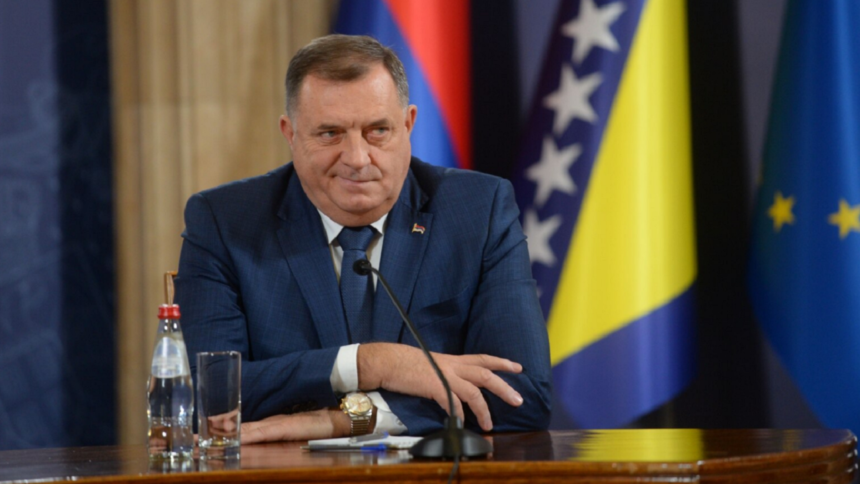The Court of Bosnia and Herzegovina approved Milorad Dodik’s request to replace his one-year prison sentence with a monetary fine, marking a significant development in the high-profile case against the Republika Srpska president.
According to the court’s statement issued on August 12, after considering the prosecution’s input, the defense proposal was accepted, allowing Dodik to pay a fine instead of serving time in prison.
Under the Criminal Code of Bosnia and Herzegovina, prison sentences up to one year can be converted into fines, with a rate of 100 BAM (approx. 50 euros) per day. Consequently, Dodik will pay roughly 36,500 BAM (over 18,000 euros) for his sentence.
Dodik was previously convicted of one year in prison and banned from holding public office for six years due to his non-compliance with decisions by the High Representative of the International Community in BiH.
Following the final verdict, the Central Election Commission (CIK) annulled Dodik’s mandate as President of Republika Srpska on August 6, 2025. Dodik’s legal team promptly filed an appeal, which the Court of BiH’s Appellate Division is expected to review within three days.
This legal process necessitates the organization of early elections for the RS presidency, a move that may face political obstacles or obstructions from Republika Srpska authorities.
In response to the CIK’s decision, Dodik announced the possibility of a referendum in Republika Srpska to allow citizens to vote on the legitimacy of his mandate and potentially reject the state court ruling.
Moreover, Dodik’s defense submitted a request to the Constitutional Court of BiH to temporarily suspend the sentence execution, a court Dodik does not officially recognize. This step is aimed at enabling a future appeal to the European Court of Human Rights after the Constitutional Court issues its ruling.
Dodik was found guilty of signing decrees enacting laws previously annulled by the High Representative, attempting to block the implementation of key decisions by the BiH Constitutional Court and international authorities within Republika Srpska.
This case remains a pivotal moment in Bosnia and Herzegovina’s ongoing political and legal challenges regarding governance, sovereignty, and rule of law.






